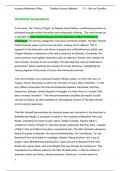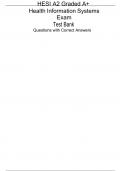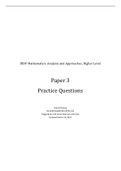Auerello Matthaeus Pillay Reddam House Waterfall 12 – Mrs de Carvalho
Unethical Governance
In the novel, The Theory of Flight, by Siphiwe Gloria Ndlovu, unethical governance is
portrayed through evident corruption and subsequent suffering. The novel serves as
a reminder of state misdemeanours and individual acts of either resistance or
compliance. The primary antagonist in the story and Head of State, The Man Himself
holds immense power over his civil servants, causing much suffering. This is
apparent in the destruction and abuse of people due to Bhekithemba’s article; and
Dingani Masuku’s submission of his wife’s autonomy to authority. Conversely, the
novel mentions incorruptible characters such as Valentine Tanaka, who, despite his
lack of power, chooses to act honourably. Through depicting varying responses to
government, Ndlovu explores the nuances of human behaviour, highlighting the
varying degrees of the power of choice that individuals exercise.
The novel unfolds in an unnamed Southern African nation, on which the story of
Imogen ‘Genie’ Zula Nyoni is said to be “the story of many other characters.” In this
way, Ndlovu showcases the interconnectedness between individuals, that they
experience, perhaps, similar degrees of struggle; it is their choice to “accept” their
fate or choose “liberation.” This interconnectedness amplifies the impact of post-
colonial corruption, as demonstrated by “decimat[ing]” actions of The Man Himself
and its varying responses.
The Man Himself demonstrates his absolute power and corruption in his directives to
Bhekithemba Nyathi, a journalist, to report on the incidents of Beauford Farm and
Estate, indicating his power-hungry nature. Golide Gumede, Genie’s father’s,
created his Theory of Flight “to make the people understand that they were...capable
of flight.” Due to Golide’s innovative, inspirational plan, The Man Himself’s obsessive
desire for power is depicted. He instructs Bhekithemba, his “mouthpiece,” to visit
Beauford Farm and Estate to investigate Golide’s “flying machine” and “race of
angels” Upon Bhekithemba reporting this, sojas are sent to Beauford Farm and
Estate and “gang-raped, shot and pillaged their way through the compound.” This
emphasises the ruthless authority The Man Himself exerts, in that he wishes to
maintain control and hence, silence resistance. Moreover, it is here where he
1






